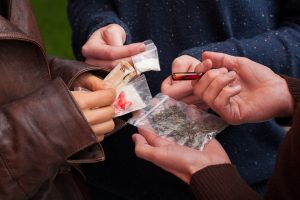
Prescription Drugs
Can I Get Arrested for a DUI If I Am Taking Prescription Drugs?
If you take medications, you could be at risk for getting arrested for a DUI. Most people think of alcohol or street drugs when they think of DUI’s. But, even if you are taking your medicine exactly as your doctor instructed you to, it is still possible to get arrested for a DUI.
Vehicle Code section 23152(e) says it is illegal to drive while you are under the influence of a drug. It makes no difference what the drug is, street drugs, prescription drugs you don’t have a prescription for or your own medications. Id the drug is affecting you enough so that you cannot safely operate the vehicle, the law says you are DUI.
What Drugs Affect Driving?
Aside from alcohol, as far as law enforcement is concerned, there are five basic groups of drugs that they train and watch for in drivers that could mean they are too impaired to drive.
• Cannabis Marijuana/Pot or Hashish
• Central Nervous System Stimulants “Uppers” like Cocaine and Methamphetamine
• Central Nervous System Depressants “Downers” like Benzodiazepines (Valium and Xanax), Ambien and other sleep medications and Barbituates
• Narcotic Analgesics Opiods like Vicodin, Oxycottin and Oxycodone and other Non-Opiod pain medications
• Psychotropics “Mood Altering” like Prozac and Lithium
How Do the Police Know I Am Under the Influence of a Drug?
The most common way the police determine what drug a person has taken is by the person telling them. While the officer’s receive training about what symptoms mean what drugs, it is very subjective and imprecise. They watch your balance, listen to see if your speech is slurred, check your eyes for dilation, pulse, blood pressure ect. They will also ask you to do field sobriety tests. All of this is referred to as Drug Recognition Evaluation.
Chemical Tests
The clearest way to determine if you are impaired by a drug is to do a test. If you are arrested, they will also take a blood sample. It will be then tested to determine how much of the drug is in your system. Drugs are measured by the number of nanograms of the drug are in your blood system. Drugs build up over a period of time until they reach their peak and then they decline.
Some medications are specifically designed to slowly release the drug into your system, also called time release.
Similar to alcohol, drugs circulate through your blood system and to your liver. It is there that they are broken down into simpler chemical compounds called metabolites. For example, the primary active ingredient in oxycodone, an opiod pain medication, is morphine. The morphine breaks down into codene. So, when trying to tell how the drug would have been affecting you, you look at how much of the active ingredient was in your blood sample. Every medication has what is called a therapeutic level. That means that is the range of nanograms your doctor wants to reach in your bloodstream to provide the needed effect.
Drugs do not break down at a constant rate. Instead, they have what is referred to as a halflife. What that means is that once you have reached your peak amount of the drug in your system, the halflife is the period of time until you have half the amount in your system. Then, in that same amount of time, it will be cut in half again. And so on and so on until it is essentially gone. For example, if the half life is an hour and the peak level is 100 nanograms, an hour after you reach 100 nanograms, you’ll be at about 50 nanograms, and then an hour after that, you’ll be at 25 nanograms.
The drug is breaking down into simpler chemical compounds called metabolites. The chemical test will also measure the metabolites. The further and further you are from taking the drug, the higher and higher the metabolites will be. So, if you have a great deal of the metabolites and a smaller amount of the active ingredient, it means the effects of the drug are wearing off or are gone.
What Do I Do If I Am Arrested for a Drug DUI?
While many lawyers handle DUI’s, only a few have studied and understand how to evaluate the test results and the drug recognition examination. So, it is critical to hire a lawyer who does. Prosecutors almost always assume the drugs made you unsafe to drive. To have a chance to avoid a drug DUI, or to minimize the punishment, it takes a knowledgeable lawyer.
If you or a loved ones need an attorney be sure to call (619) 258-8888 or log into our website www.SanDiegoDefenders.com and be sure to check out the Nixle feed. We can get you through it!



